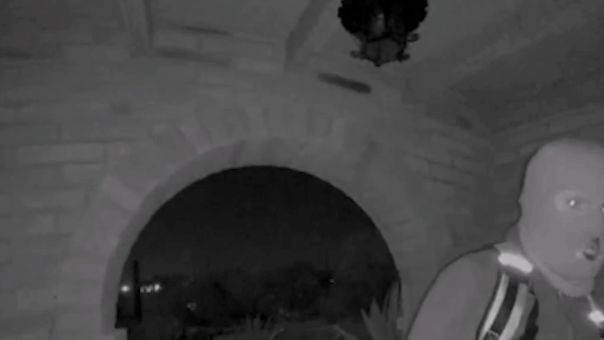HONOLULU – The U.S. government's largest-ever human trafficking case, involving alleged exploitation of about 600 agricultural workers from Thailand, was put in jeopardy after all charges were dismissed in a related prosecution of a Hawaii farm, attorneys said Friday.
Federal authorities have accused Los Angeles-based labor recruiting company Global Horizons Manpower Inc. of manipulating workers placed in U.S. farms across the country, and an FBI spokesman last year compared the company's actions to a form of modern-day slavery. A trial against Global Horizons CEO Mordechai Orian is set for February in Honolulu.
But after U.S. prosecutors on Thursday abruptly dropped similar accusations that owners of Hawaii's Aloun Farms economically entrapped 44 Thai laborers, the fate of the case against Global Horizons became unclear.
"They don't have a case anyway," Orian said in an interview Friday. "Everybody knew that with Aloun Farms, that they had more on them than on me. ... When you see the facts and the reality, it's different from when you go to the media and make somebody look like a monster."
Orian's attorney, Randy Shiner, said the government's failure to prove wrongdoing by Aloun Farms has "significant reverberations" for Global Horizons.
"I'm really hoping they'll look at the disaster they just went through," Shiner said.
Both Global Horizons and Aloun Farms were accused of using the same tactics to keep foreign workers in their service: false promises of lucrative jobs, passports confiscated and threats of deportation. Global Horizons supplied 33 workers to Aloun Farms for six weeks in 2003, before the time when mistreatment was alleged at Aloun.
The workers used their ancestral lands as collateral to get loans of up to $20,000 each that they paid recruiters to land the jobs. Then when they reached U.S. farms, federal prosecutors allege they were told they'd be sent back to Thailand if they complained about work conditions or pay, leaving them no recourse to repay their debts.
Once the Thai laborers recruited by Global Horizons arrived in the United States starting in May 2004, they were put to work and sent to sites in states including Hawaii, Washington, California, Colorado, Florida, Kentucky, Massachusetts, New York, Ohio, South Carolina, Tennessee, Texas and Utah.
Orian said he has thousands of pages of documents proving he paid the workers what they were owed, and he said passports were only taken for the purpose of creating state and federal IDs.
The federal case against Alec and Mike Sou of Aloun Farms fell apart when lead prosecutor Susan French conceded she inaccurately stated to a grand jury that workers couldn't be charged recruiting fees when the laborers traveled to Hawaii in 2004. The law was changed in late 2008 to prohibit recruiting fees.
French, a Washington, D.C.-based trial attorney for the U.S. Department of Justice's Civil Rights Division, stepped down from the prosecution team shortly afterward because of unspecified health issues.
The same prosecution team, which gave up its trial of the Sou brothers Thursday after only three days of testimony, was expected to handle Orian's trial.
When asked whether the Aloun Farms outcome would affect the Global Horizons case, the Department of Justice gave a one-word answer: "No," said spokeswoman Xochitl Hinojosa in an email.
Thomas Bienert, an attorney for Alec Sou, said the Aloun Farms case would have an impact.
"It has to be a setback for the case because their lead prosecutor is out of commission and she made some mistakes," Bienert said.
The Thai laborers said Friday they felt cheated that they paid so much money for recruiting fees but didn't get the three years of work they thought they were promised. Their visas expired three months after they arrived in Hawaii, and the U.S. Department of Labor wouldn't grant them extensions on their foreign guest worker visas.
"What happened to our money? Isn't this like an injustice or something against the law?" asked Chakkree Sriphabun, speaking through an interpreter. "It's like being robbed. They promised us a bright future."
Many of the laborers who used to work on Aloun Farms remain in Hawaii under special government visas granted to trafficking victims.
Now that the criminal case has been dropped, they'll seek compensation in a civil lawsuit against the Sou brothers, said immigration attorney Melissa Vincenty, who represents workers involved in both the Global Horizons and Aloun Farms cases.









































